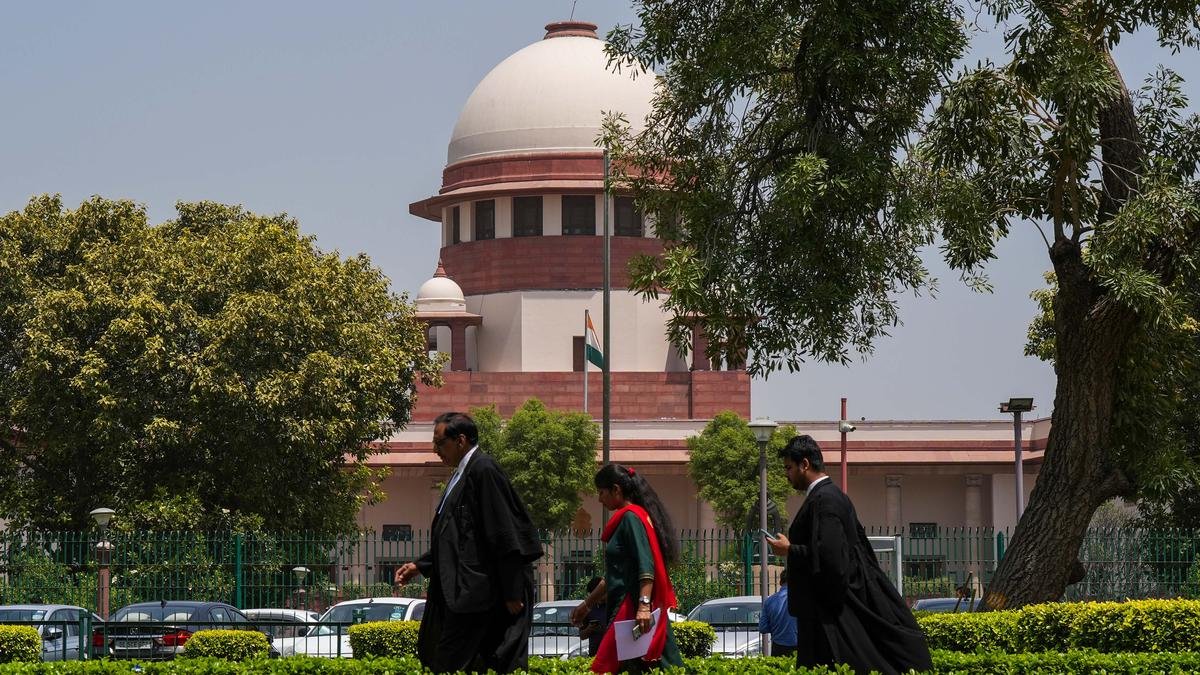Betrayal, Loyalty & Survival: The Incredible Story of Nicolás Maduro and America’s Failed Plot
A Secret Mission Unveiled
When Venezuela’s presidential pilot, General Bitner Villegas, walked into a hangar at Las Américas Airport in the Dominican Republic in April 2024, he believed he was meeting a foreign counterpart to discuss aircraft maintenance. What unfolded instead was the opening act of a real-life espionage drama—an audacious covert effort allegedly orchestrated by the United States to capture Venezuelan President Nicolás Maduro mid-flight.
Sixteen months later, the operation had quietly unravelled. No plane was diverted, no leader detained, and no “mission accomplished” moment materialised. Nicolás Maduro remains in Caracas—embattled but safe—while details emerging from the Associated Press and Latin-American intelligence sources reveal a web of intrigue, money, and betrayal that reads like a Cold War thriller set in the 21st century.
“In exchange for secretly ferrying Nicolás Maduro into America’s hands, the pilot would become a very rich man and beloved by millions.” — AP Investigation
The Plot’s Architecture
The story began with a U.S. inquiry into Venezuelan jets allegedly violating sanctions by undergoing repairs in the Caribbean. Edwin Lopez, then a Homeland Security Investigations (HSI) officer attached to the U.S. Embassy in Santo Domingo, saw an opportunity. Through aviation records, he discovered that Villegas—a trusted pilot within Venezuela’s elite presidential guard—was responsible for ferrying Nicolás Maduro on international missions to Cuba, Iran, and Russia.
In a face-to-face meeting at a private hangar, Lopez made an offer: divert the presidential jet on one of those trips to a U.S.-controlled airfield—perhaps Puerto Rico or even Guantánamo Bay—and deliver Nicolás Maduro into custody. In return, Villegas would receive millions of dollars, security guarantees, and an American welcome befitting a national hero.
Villegas listened. He nodded. He took Lopez’s number. Then, he walked away.
The Long Courtship
For the next 16 months, encrypted messages continued between Lopez and the pilot through WhatsApp and Telegram. According to AP’s documentation, the U.S. agent even forwarded official Justice Department reward posters promising up to $50 million for information leading to Nicolás Maduro’s capture or conviction on narcotics-related charges.
Behind the scenes, U.S. authorities reportedly expanded surveillance on Venezuelan aircraft, seizing two jets registered under companies tied to Maduro’s circle. Intelligence officials justified the seizures as lawful, citing “national-security value.”
But the heart of the plan—the defection of Nicolás Maduro’s inner-circle pilot—never materialised. Villegas, a career officer of the Venezuelan Air Force, refused to betray his commander-in-chief. By mid-2025, communications ceased. The covert operation was effectively dead.
A Crisis in the Making
The revelation of the failed scheme has rocked Washington–Caracas relations anew. The Venezuelan Ministry of Defence denounced the plan as an “imperialist kidnapping plot,” while Russia publicly declared “full solidarity” with Nicolás Maduro’s government. Kremlin spokesperson Maria Zakharova condemned what she termed “neo-colonial aggression masquerading as law enforcement.”
The U.S. State Department, however, has not confirmed nor denied the allegations. Officials speaking off-record insist the conversations between Lopez and Villegas were “unsanctioned intelligence chatter” rather than a formal CIA or Pentagon plan. Still, the incident lands in a combustible context: the U.S. had already branded Nicolás Maduro’s regime a narco-terrorist organisation, and the Trump administration had revived sanctions while authorising limited “clandestine actions” in the Caribbean.
“This looks less like diplomacy and more like a page from the old coup playbook.”
“There is nothing that Latin Americans hold most dear to their heart than the non-intervention principle when it comes to relations between Latin America and the United States.”
— Historian and Latin America specialist Stephen Kinzer.
What Went Wrong
Analysts say the plot collapsed for three reasons:
- Overreliance on a single insider. Covert recruitment of a head-of-state pilot is extraordinarily high-risk; discovery would amount to an act of war.
- Underestimation of loyalty. Venezuelan officers within Nicolás Maduro’s security circle are vetted through ideological, familial, and economic ties that make defection rare.
- Diplomatic exposure. Had the plan succeeded, forcibly landing a foreign president’s aircraft in U.S. territory would have violated multiple international conventions, including the Chicago Convention on International Civil Aviation.
As a former CIA analyst put it, “Even during the Cold War, the U.S. rarely targeted heads of state mid-flight. The blowback risk is catastrophic.”
Regional Reverberations
The failed operation plays directly into the long history of U.S. interventionism in Latin America—from Guatemala in 1954 to Chile in 1973 and Panama in 1989. To many across the region, it confirms lingering fears that Washington continues to view Latin America through a lens of regime-change engineering.
For Venezuela, the story bolsters the narrative that external enemies threaten its sovereignty. State television has turned Villegas into a national hero, broadcasting documentaries titled “The Loyal Pilot” and staging military parades celebrating his “patriotic integrity.”
Within days of the exposé, Caracas expelled two U.S. diplomats and invited Russian military advisors to “enhance presidential flight security.” Moscow quickly announced new defence-cooperation talks.
Timeline of Events
| Date | Event |
|---|---|
| April 2024 | Villegas retires from the Venezuelan Air Force but remains close to Nicolás Maduro’s circle. |
| June–Oct 2024 | Encrypted communications continue; U.S. raises bounty on Nicolás Maduro. |
| July 2024 | Villegas retires from Venezuelan Air Force but remains close to Maduro’s circle. |
| Feb 2025 | U.S. seizes Venezuela-linked jet for sanctions violations. |
| Aug 2025 | Communications between Lopez and Villegas cease. |
| Oct 2025 | AP exposes the plot publicly. Maduro remains in power. |
Facts & Figures Panel
- Reward offered: up to US $50 million for information leading to Nicolás Maduro’s capture.
- Operation duration: ~16 months (Apr 2024 – Aug 2025).
- Key U.S. agency named: Homeland Security Investigations (HSI).
- Lead Venezuelan figure: Gen. Bitner Villegas, pilot to Maduro.
- Status: Failed — no diversion or capture occurred.
- Immediate outcome: Maduro safe in Caracas; Venezuela–U.S. relations deteriorate.
The Legal and Ethical Quagmire
International law experts argue the attempted recruitment crosses the line between legitimate law enforcement and extrajudicial rendition. The Vienna Convention on Diplomatic Relations protects heads of state from detention while abroad; intercepting or luring one into capture could be interpreted as aggression.
For Washington, however, Nicolás Maduro remains under federal indictment for alleged narco-terrorism and corruption, providing the legal rationale for a U.S. arrest warrant. The grey zone lies in the method: inviting a pilot to commit high treason and reroute a sovereign leader’s aircraft.
The instruments or tools employed or fused together to unleash hybrid wars are often difficult to discern, attribute, or corroborate.” — Arsalan Bilal, via the Wilson Center.
Echoes of a Larger Strategy
Since 2020, the U.S. has increasingly favoured targeted sanctions, reward programs, and covert recruitment as tools to weaken adversarial regimes without boots on the ground. Similar tactics have been documented in operations against cartel leaders, Iranian agents, and Russian mercenary networks.
Yet the Venezuela case illustrates the inherent fragility of such strategies: they rely on human defection in contexts where loyalty is often reinforced by fear and ideology. “It’s not chess,” notes former NSA officer Linda Carter. “It’s poker—and every card is face-down.”
The Propaganda War
In Caracas, state media is capitalising on the narrative. Posters proclaim “Lealtad Aérea, Victoria Nacional” (“Aerial Loyalty, National Victory”). A televised address by Nicolás Maduro declared:
“They tried to bribe our sky. But Venezuela’s dignity is not for sale.”
Meanwhile, opposition figures worry that the revelation could be weaponised domestically to justify further crackdowns on dissent, with the government painting critics as potential “foreign assets.”
Global Fallout
Diplomatic observers foresee ripple effects beyond Latin America. Nations wary of U.S. reach—such as China, Iran, and Russia—are expected to cite the failed operation in international forums to question U.S. commitment to sovereignty and non-interference.
At the United Nations General Assembly, Venezuela plans to submit a formal complaint, labelling the incident “aerial piracy under state sponsorship.”
For its part, the U.S. maintains strategic silence. When pressed by journalists, a State Department official responded tersely: “We do not discuss intelligence matters.”
What Comes Next
The failed abduction attempt marks a new low in U.S.–Venezuela relations. Both governments are now engaged in parallel information wars—one projecting moral legitimacy, the other defiance.
Should Washington continue clandestine pressure, Caracas may respond by deepening its alliances with Moscow and Beijing, potentially allowing Russian long-range aircraft or Chinese surveillance technology to operate from Venezuelan soil—a scenario that could alter the Western Hemisphere’s security calculus.
In the words of a veteran Latin America analyst :
“Every failed covert action leaves behind a trail—not just of embarrassment, but of consequences. The ghosts of Guatemala, Chile, and now Caracas, all whisper the same warning: intervention breeds resistance.”
Conclusion
The attempted recruitment of Nicolás Maduro’s pilot stands as one of the most daring—and revealing—episodes in recent hemispheric geopolitics. Though it failed spectacularly, it exposes the persistence of regime-change strategies cloaked in modern intelligence tactics.
For Venezuela, it is a story of loyalty and defiance. For the United States, it is a cautionary tale about the limits of clandestine reach.
And for the world, it is a stark reminder that the battles once fought with armies and coups may now unfold quietly—in encrypted chats, private hangars, and the sky itself.
#NicolasMaduro #OperationSkyfall #Venezuela #USPolitics #WorldNews #Geopolitics #Espionage #MaduroNews #LatinAmerica #GlobalTensions #InvestigativeJournalism #News24Media
Nicolás Maduro, Nicolás Maduro news, Nicolás Maduro kidnapping plot, Operation Skyfall, U.S.–Venezuela tensions, failed U.S. covert mission, Maduro pilot story, Venezuela espionage
Discover more from
Subscribe to get the latest posts sent to your email.











3 COMMENTS